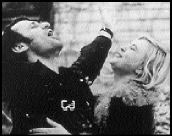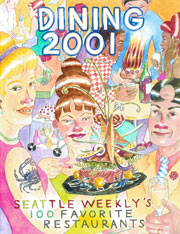Gish Jen grounds us in familiar territory in her fiction: the first-generation Chinese-American experience, the predictable intergenerational tensions, the identity crises, and the inevitable dissolution of a cultural heritage. But what Jen manages to salvage under these conditions are sparkling perspectives and characters, plenty of humorous details, and opportunities for her characters to make giant mistakes and successes. Jen’s previous novels, Typical American and Mona in the Promised Land, two tales of the same family’s assimilation in America, were revered for their sharp, assured language and memorable characters. In Who’s Irish?, her new collection of eight stories, Jen revisits the Changs and introduces us to others who grapple with their connection to their parents’ culture.
Who’s Irish? by Gish Jen (Knopf, $22)
In the title story, a 68-year-old woman’s first-person narrative rails against her daughter’s marriage to a man with the last name Shea. This is not only an affront to her heritage, she makes clear, but there are grandchildren to consider, tiny beings with the potential to inherit Chinese ways if the influence is strong and consistent. “In China, people say mixed children are supposed to be smart,” she says before she disciplines her granddaughter with secret spankings. This woman distrusts her son-in-law, a man who can’t hold down a job and who personifies non-Chinese culture, with its “plain boiled food, plain boiled thinking. Even his name is plain boiled: John. Maybe because I grew up with black bean sauce and hoisin sauce and garlic sauce, I always feel something is missing when my son-in-law talk.”
The Changs figure in two stories, “The Water Faucet Vision” and “In the American Society.” Parents Ralph and Helen fight often, over what Helen tells her daughters in “The Water Faucet Vision” are “the pains of life.” Such pains, we find out, are part of the suburban dark side that is obscured behind Cleaver-esque facades. The Changs, in conforming to the ideals of the so-called American Dream, divide bitterly over money and the desire to become part of their suburban New York neighborhood. They hiss at each other in Shanghainese, break things, and yell over keeping up with the Joneses until Helen is seriously injured during a fight. In the midst of these family upheavals, daughter Callie decides, in a most pious Catholic-schoolgirl fashion, to become a martyr. And in witnessing her parents’ escalating anger, she does what any good saint-in-training would: She looks for a miracle. “What I wanted by then was a real miracle. . . . I wanted to be able to touch my mother without shuddering, to be able to console my father . . . so many things that I didn’t know how to pray for them, that I wouldn’t have known how to start even if I had the power to work miracles.”
In these stories characters face everyday ignorance, but they aren’t interested in being “Chinese” or “American,” in one category over another. As they become parents they want opportunities for their children, good jobs, and as it turns out, everything their parents left China for in the first place and wanted for them. As Duncan, who visits China in the hopes of jump-starting his life in “Duncan in China” realizes, “Still he could say this, that there was one thing he had, being an American—not so much an unshakable conviction as a habit of believing in the happiest possibility. . . . Yet he saw now, finally, that it was as incurably his as any faith.”
Gish Jen reads at Elliott Bay Book Co. this Wednesday, June 16, at 7:30.







